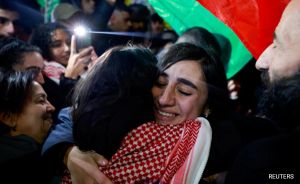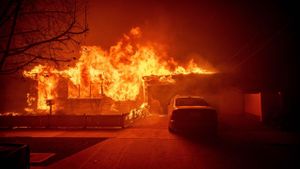SEOUL, South Korea — North Korea launched a sharp criticism at U.S. Secretary of State Marco Rubio on February 3, 2023, branding his remarks as provocatively dismissive. Rubio, during a recent interview, described the country as a "rogue state," which, according to North Korea's state-run media KCNA, does not serve American interests and reflects outdated hostilities.
This condemnation marks the first direct comment from North Korea against the Trump administration since President Donald Trump resumed office on January 20. The North’s Foreign Ministry emphasized its resolve to respond strongly to any provocations from the United States, stating, "The hostile words and deeds of the person who is in charge of the U.S. foreign policy served as an occasion of confirming once again the U.S. hostile policy toward the DPRK which remains unchanged," identifying Rubio's remarks as fundamentally flawed.
North Korea's response didn't stop there. The ministry expressed deep concern about the United States' new missile defense initiatives, including the recently announced plan mandatorily creating what has been dubbed the "American Iron Dome". This system aims to protect against various forms of aerial attacks, enhancing the U.S. defensive posture.
According to the statement released via KCNA, the introduction of such missile defense measures has compelled North Korea to bolster its military capabilities. “The idea of a new missile defense system, which recalls the specter of the dangerous ‘Star Wars’ plan of the Cold War, poses a risk of justifying an arms race under the pretext of coping with the ‘threat’ of adversaries, regardless of its feasibility,” the statement elaborated.
This tense interaction indicates no thawing relations between North Korea and the U.S., particularly amid Rubio’s recent statements. While it's not uncommon for U.S. officials to use such terminology to describe North Korea, Rubio's choice words seem to have struck a particularly sensitive chord within the totalitarian regime. Rumblings of discontent from North Korea's leadership suggest they're far from open to diplomatic shifts, even though Trump has hinted at the possibility of rekindling dialogue with Kim Jong Un.
Meanwhile, as the backdrop of these exchanges continues to evolve, North Korea affirmed its position staunchly, stating, "Rubio’s coarse and nonsensical remarks only show directly the incorrect view of the new U.S. administration on the DPRK and will never help promote the U.S. interests as he wishes." This encapsulates the belief among North Korean leaders of their perception as victims of American policy and rhetoric.
Interestingly, this episode reflects the broader animosities embedded within U.S.-North Korea interactions—politically charged, strained, and, at times, unpredictable. North Korea's immediate military posturing serves as a reminder of their commitment to maintaining sovereignty through strength.
Analysts watching this relationship note how North Korean threats are often timed with U.S. assertions and actions. The consistent military drills conducted by the U.S. and allied nations contribute to the heightened rhetoric from Pyongyang, as does the perception of external threats such as advanced missile defense systems.
Indeed, with both nations firmly entrenched in their respective stances, the potential for conflict remains unsettling. Rubio's offhand remarks are just the latest jab from the U.S. to the North as the Trump administration reexamines its approach, straddling the line between firm sanctions and encouragement for dialogue.
While avenues for successful negotiation could lead to regional stability, this exchange indicates troubling undercurrents whereby miscommunication and misperceptions continue to dominate. Following the unsuccessful denuclearization talks between Washington and Pyongyang, North Korea's commitment to developing its nuclear arsenal intensifies, prompting questions about future diplomatic endeavors.
It remains to be seen whether this criticism from North Korea will filter through to other policy channels or if it will be dismissed as mere braggadocio typical of the North's diplomatic playbook. Nevertheless, North Korea’s hardline stance and persistent military developments underline their focus on perceived threats, both real and speculated.
To conclude, as North Korea stands resolute against U.S. provocation, the rhetoric and actions from both sides suggest complicated future interactions filled with uncertainties and challenges. The string of harsh exchanges exemplifies how current geopolitical climates continuously inhibit potential reconciliation efforts, leaving both aid and tranquility out of reach.



